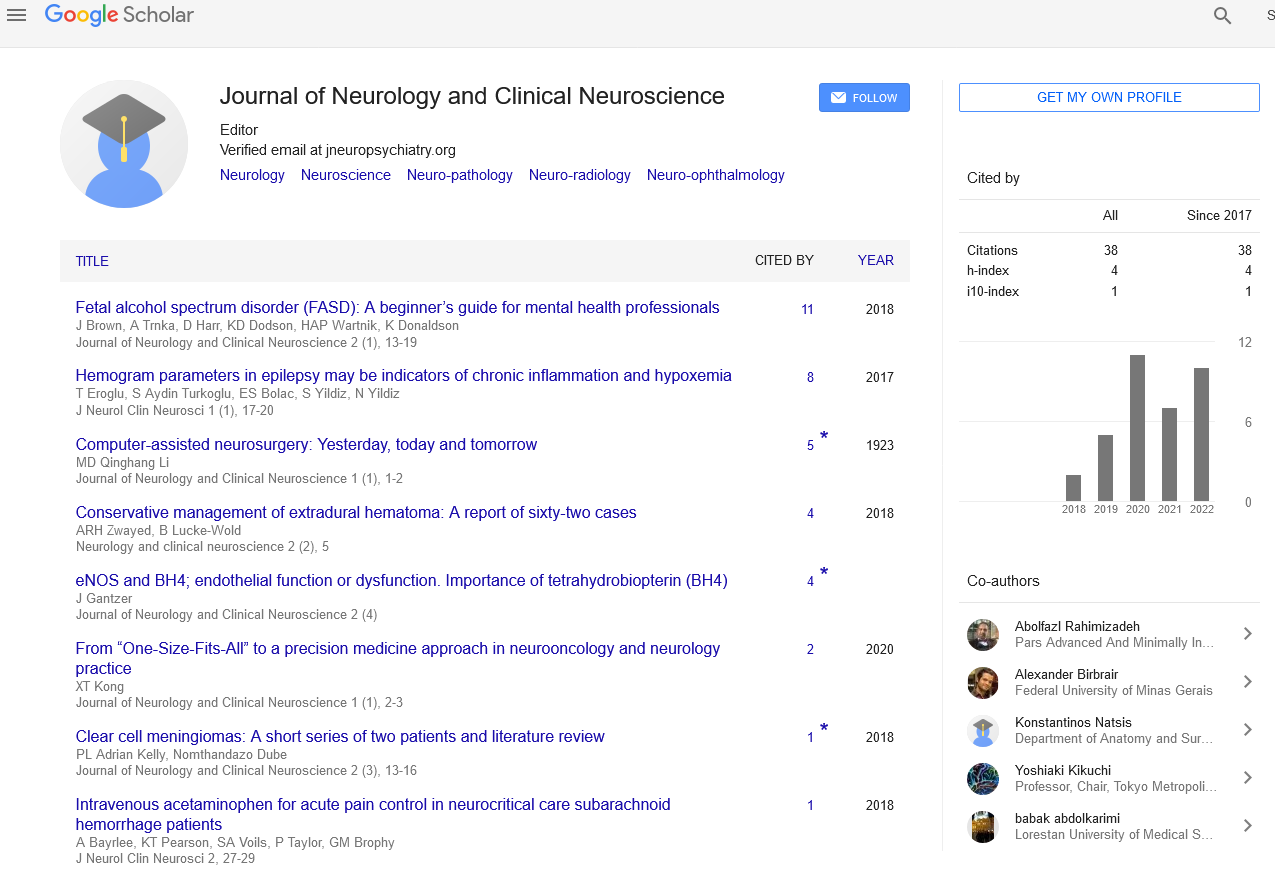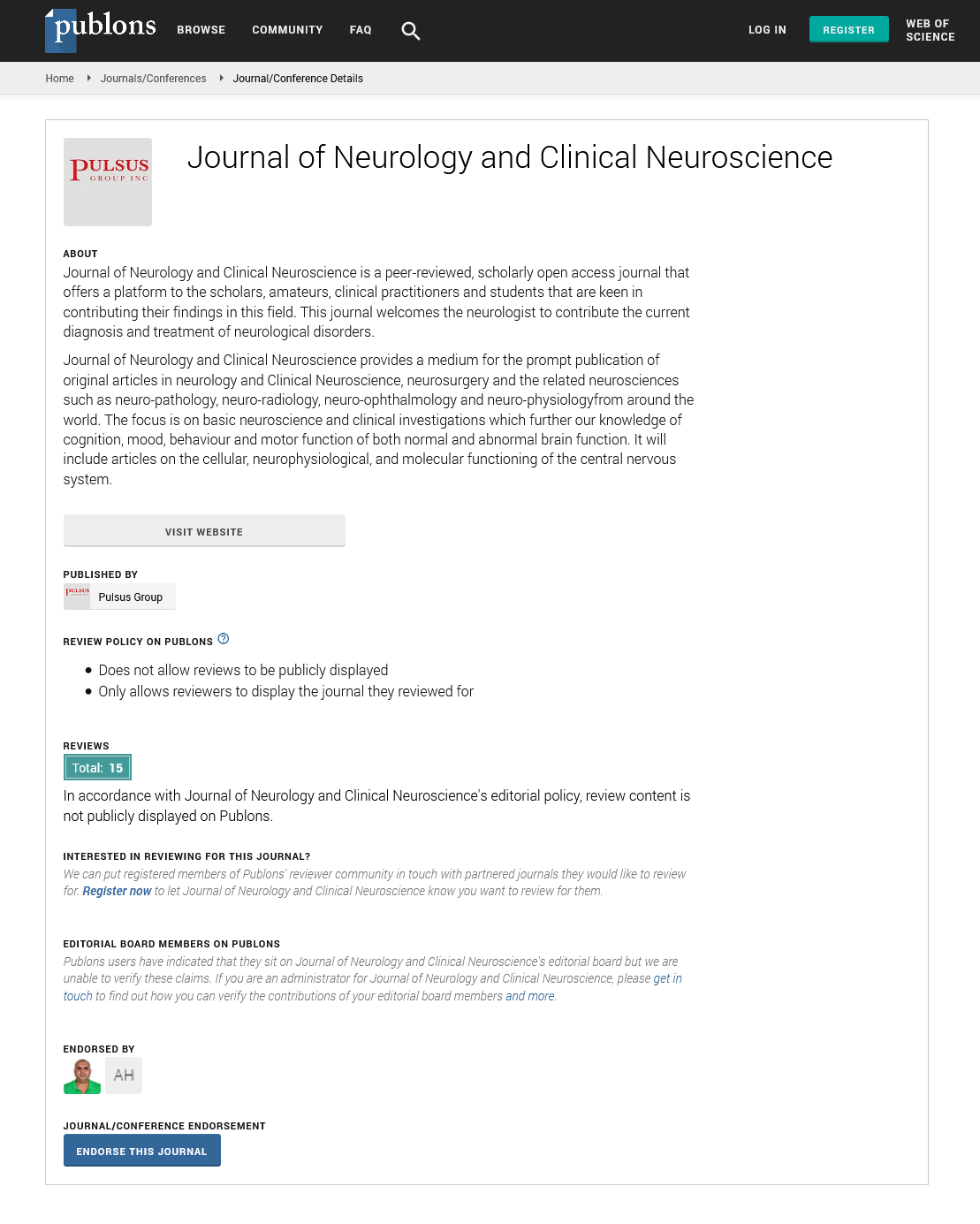Sign up for email alert when new content gets added: Sign up
Bryostatin improves moderate to severe alzheimer's disease patients
14th International Conference on Vascular Dementia
March 11, 2022 | Webinar
Daniel L. Alkon
Synaptogenix Inc, New York
ScientificTracks Abstracts: Jour of Neur & Clin Neuros
Abstract :
Therapeutics to reduce the pathologic processes that underlie Alzheimer’s disease (AD) have not, to date, been approved by the FDA. While amyloid plaques and neurofibrillary tangles, together with clinical dementia, define AD, the loss of synaptic connections in the AD brain is the only pathologic deficit that closely correlates with cognitive deficits (Terry, et al., Ann. Neurol.,1991; Scheffe et al., Neurology, 2007; Holmes et al., Lancet, 2008). In extensive pre-clinical studies, the Synaptogenix platform drugs have been shown to reverse synaptic loss, prevent apoptosis, and to reduce amyloid plaques and tau tangles. Bryostatin activates the BDNF, NGF, IGF, HGF, and other Synaptic Growth Factor pathways to induce synaptogenesis, prevent apoptosis, and also activate enzymes to degrade amyloid and tau abnormalities. These pre-clinical findings could underlie the persistent benefits observed in several early AD trials: Phase I A, (2017), Compassionate Use Trials, (2017), and two pilot Phase II trials (2018, 2019). Bryostatin, in the absence of Namenda, caused significant (p<.01) improvement, 4.8 Severe Impairment Battery (SIB) points over baseline, with each of the Phase II trials using a single 11-week cycle of i.v. Bryostatin doses. Persistence of these benefits at least 30 days after the protocol is consistent with the demonstrated pre-clinical synaptogenic efficacy. The ongoing, NIH-supported 6 month trial includes two dosing cycles selected to extend the SIB improvement and minimize short-term placebo effects. Other planned trials will address new indications such as Fragile X / Autistic spectrum disorder (for which Synaptogenix has Orphan Drug Status) and Multiple Sclerosis – to demonstrate Bryostatin’s regenerative therapeutic potential. Pre-clinical evidence suggests that this regenerative potential may also apply to other causes of neurodegeneration such as multi-infarct dementia (See Sun and Alkon, TIPS, 2019).
Biography :
Daniel Alkon, M.D., serves as President, Chief Scientific Officer and Scientific Founder of the Company. Dr. Alkon was the founding Scientific Director of the Rockefeller Neurosciences Institute (BRNI) from 1999 to 2016. He received his undergraduate degree in chemistry in 1965 at the University of Pennsylvania. After earning his M.D. at Cornell University and finishing an internship in medicine at the Mount Sinai Hospital in New York, he joined the staff of the National Institutes of Health where during his 30 year career he became a Medical Director in the U.S. Public Health Service at the National Institute of Neurological Disorders and Strokes and Chief of the Laboratory of Adaptive Systems. Dr. Alkon occupied the Toyota Chair in Neurodegenerative diseases at BRNI from June 2006 until September 23, 2016 and served as Research Professor in Biophysics at the Johns Hopkins University.





